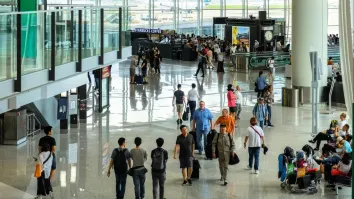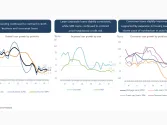New law aids HK businesses against Mainland infringers
Reciprocal legal enforcement aids cross-border commerce.
Since January 29, 2024, businesses operating between Hong Kong and Mainland China have experienced a shift in the legal landscape, as a new agreement has allowed for the reciprocal enforcement of civil and commercial judgments. This change, which includes most intellectual property (IP) rights but excludes patents, has affected companies facing cross-border infringement issues.
Douglas Clark, a partner at Tanner De Witt in Hong Kong, sheds light on the benefits this arrangement offers to local businesses. "The biggest benefit is that you can now take action against people. And then once you've got a judgement in Hong Kong, it is taken to China to enforce it," Clark said.
Previously, IP infringements that occurred only in Hong Kong were difficult to address, as judgments made in Hong Kong were not enforceable on the Mainland. This often resulted in what Clark describes as "empty judgments."
Companies in Hong Kong that previously faced risks when Mainland entities infringed upon their products online will now be able to seek recourse and enforce judgments across the border. Conversely, Mainland businesses selling to Hong Kong must now navigate the increased legal risks of potential lawsuits in Hong Kong with enforceable judgments in their home regions.
“If you're an e-commerce business based in mainland China, and you start shipping into Hong Kong, you now run the risk of being sued in Hong Kong. If a judgement is granted against you for monetary award, having that award enforced against you back in your hometown, so you have to pay the damages,” he said.
Clark pointed out critical areas where the arrangement falls short. "The major gap in this new legal framework is the exclusion of patents from the reciprocal enforcement agreement," he noted.
This means businesses cannot pursue patent infringement claims in one jurisdiction and seek damages in the other. Furthermore, injunctions, which are vital in IP cases for stopping infringing activities, remain unenforceable across borders. "In IP cases, the major relief is often the injunction, not just the damages," Clark emphasised.
This inability to enforce injunctions underlines a serious weakness in the arrangement, complicating the legal strategy for businesses facing serious IP infringements. The result is that while businesses can claim damages, stopping ongoing infringement through cross-border legal injunctions is not possible, necessitating separate legal actions in each jurisdiction.



















 Advertise
Advertise






Commentary
Navigating Hong Kong’s regulatory landscape: a challenging and rewarding endeavour
Wellness craze: Emerging growth for commercial space